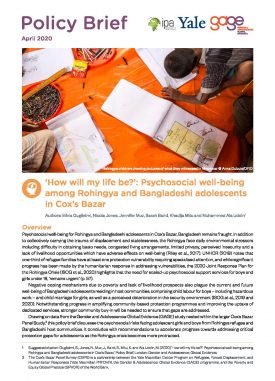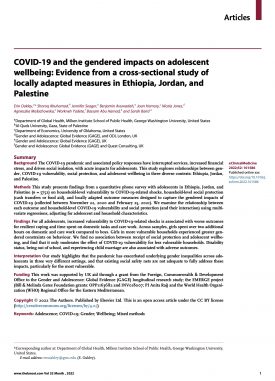Adolescence is seen as a window of opportunity for intervention but also as a time during which restrictive gender attitudes and norms become more salient. This increasingly gendered world has the potential to profoundly influence adolescents’ capabilities, including their physical and mental health. Using quantitative data on 6,500 young adolescents (10–12) from the Gender and Adolescence: Global Evidence (GAGE) program, this paper analyses the association between restrictive gender attitudes (RGAs) at the individual level and restrictive gender norms (RGNs) at the community level and physical and mental health in Bangladesh and Ethiopia. We find significant associations between RGAs and RGNs and height-for-age z-scores, body mass index z-scores, self-reported health, adolescent hunger, psychological well-being, and self-esteem. We find no relationship between RGAs or RGNs and illness. We also find heterogeneity across country and urbanicity. We find surprisingly limited variation by gender, and the differences we do see point to important vulnerabilities for both boys and girls. Our results point to the powerful role that distal factors such as culture and beliefs, as manifested through RGAs and RGNs, can play in shaping health outcomes for both boys and girls and suggest important next steps for future research and policy.
Suggested citation
Baird, S., Bhutta, Z. A., Hamad, B. A., Hicks, J. H., Jones, N. and Muz, J. (2019) ‘Do restrictive gender attitudes and norms influence physical and mental health during very young Adolescence? Evidence from Bangladesh and Ethiopia’, SSM – Population Health, 9, p. 100480 (https://doi.org/10.1016/j.ssmph.2019.100480)


